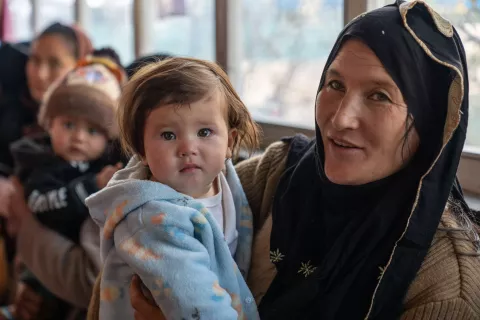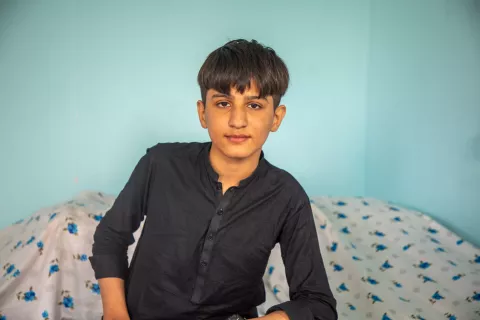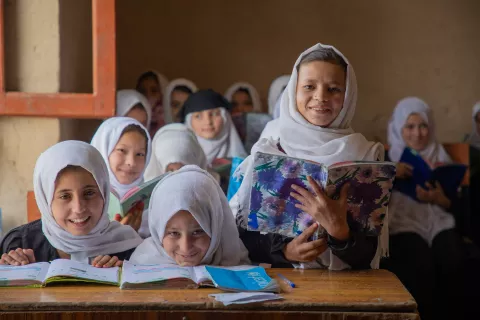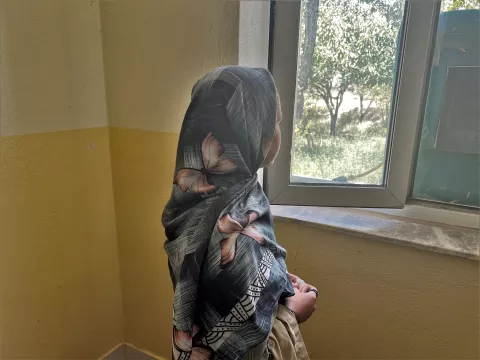A girl’s fear, and a source of distress
Child marriage
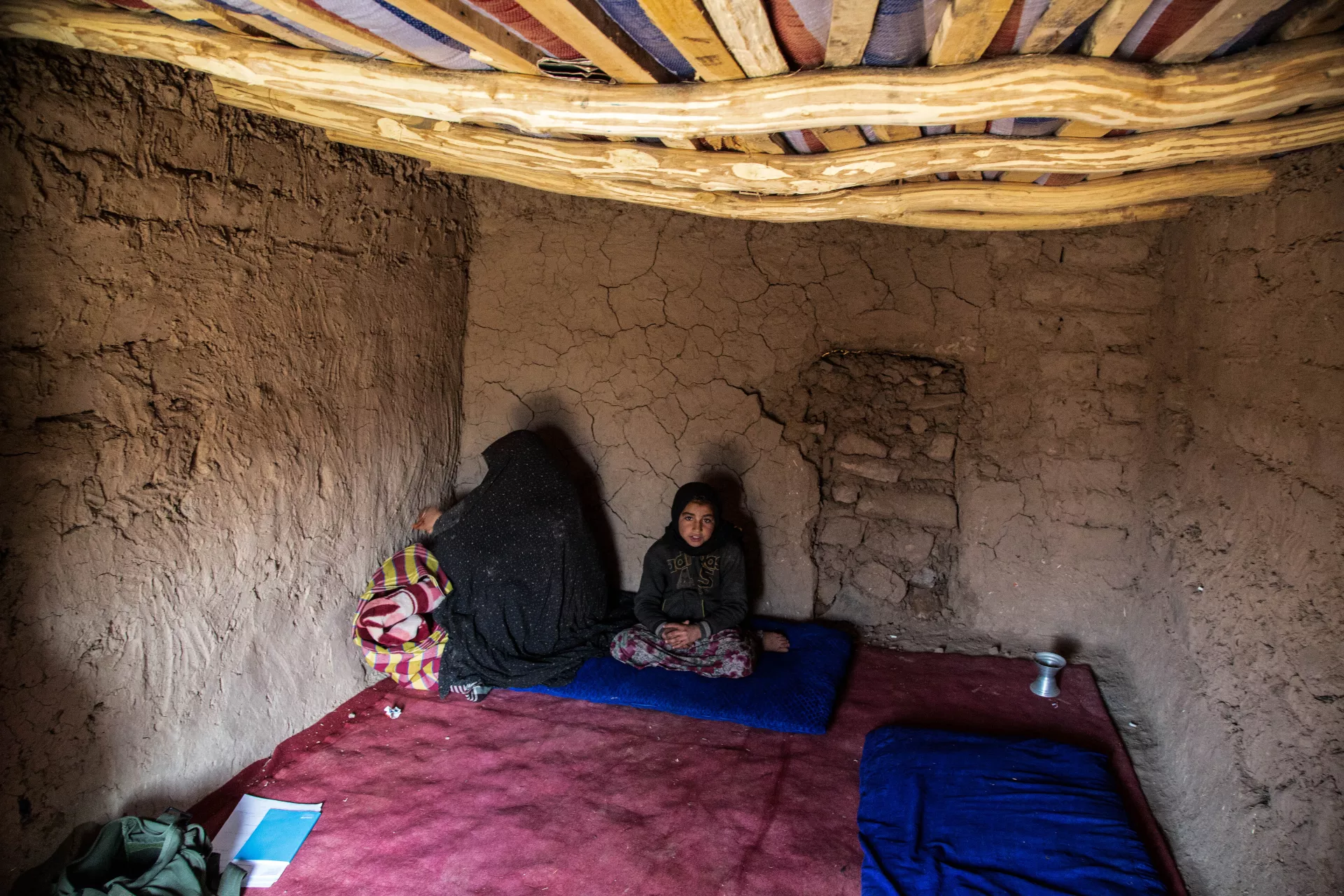
Herat, Afghanistan, 2 May 2019- Living in a dark and cold room in an internally displaced camp, Badro,10, was not cheerful like other girls of her age. Her round face, big brown eyes, and her head fully covered with a black scarf, is afraid of her future.
“Since I was five years old, I got engaged to a man who is senior to me by 30 years,” says Badro with tearful eyes.
Due to drought worsened by climate change and increased conflict, Badro’s family was forced to flee their home in Ghormach district of Badghis, like all families in the camp. But unlike other children living in the camp, Badro is suffering from distress. Her engagement to this older man is making her sad and always on edge.
Due to drought, Badro’s family’s crop dried out, forcing them into further poverty. Their situation forced her father to borrow money from their relatives.
Situation made worse
“My kids were hungry for days and we even did not have bread to feed my children,” says Babo, 29, Badro’s mother “We did not have choice other than getting our daughter engaged.”
Badro’s family was not able to repay the money. “My husband was beaten because he was not able to pay back the money on time,” adds Badro’s mother with pain in her eyes.
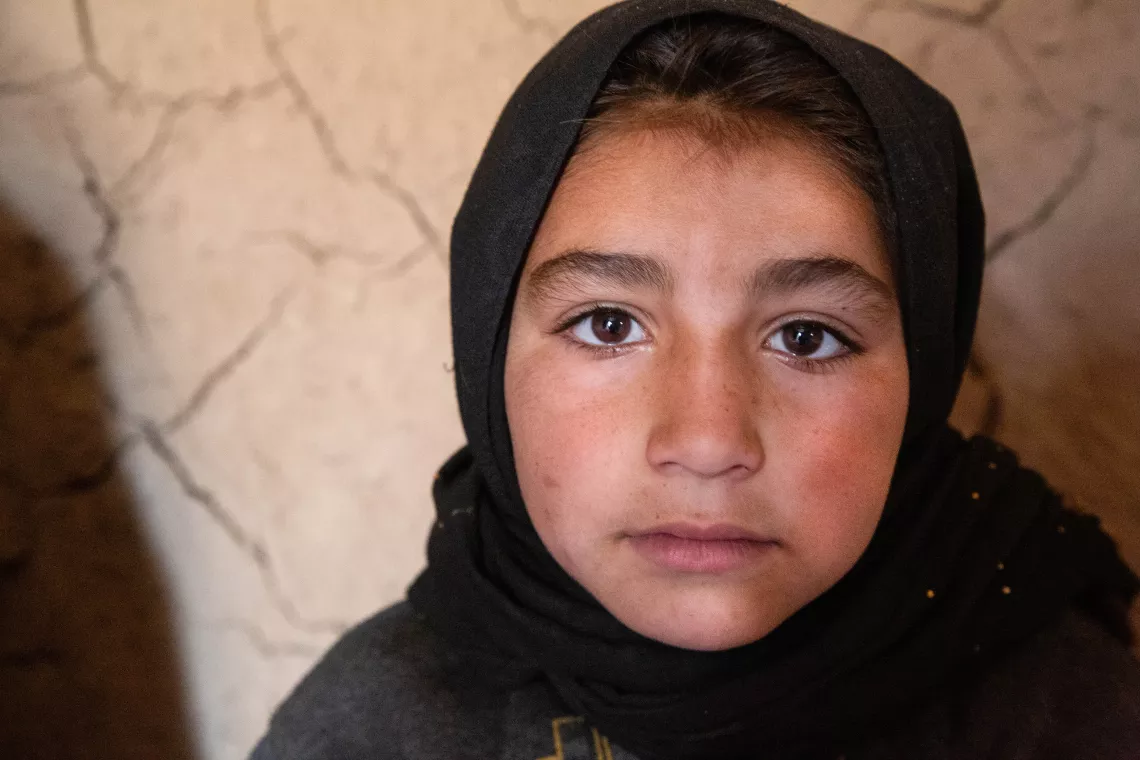
"I do not like to go to a strange and unfamiliar home, I want to stay here with my family."
A recent UNICEF study showed that worsening security situation, increased poverty, violence and social norms put girls like Badro at a disadvantage. The study stated that 42 per cent of households reported that at least one member of their family got married before the age of 18. And this rate increases to 66 per cent in most disadvantaged areas, such as internally displaced camps like Regreshan camp.
After engagement, Badro was not allowed to go out and play with other children. “I did not allow Badro to go out to play, because in our culture, it is shameful for engaged girls to be outside the house,” adds Badro’s mother.
This situation made Badro even worse. Her childhood was completely robbed.
Badro even witnessed her father being beaten by relatives who loaned him the money. “My father’s head was bleeding and I started screaming,” says Badro with sadness.
Talking about her engagement, Badro says with despair, “I do not like to go to a strange and unfamiliar home, I want to stay here with my family. And what hurts the most is when girls my age start making fun of me, yelling my future husband’s name.”
Regaining a sense of normality
After being in the internally-displaced camp for few months, Badro’s mom and dad decided to allow her to be part of UNICEF child-friendly spaces.
At the beginning, Badro was always isolated, not engaging with her peers at the centre.
“Initially, Badro was not engaging with other children,” says Burhan, Badro’s teacher. “Even her parents were fed up with her and wanted to marry her off at an early age.”
Like all children of her age, and only after few weeks, Badro started engaging and learning new skills that help her to overcome her distress.
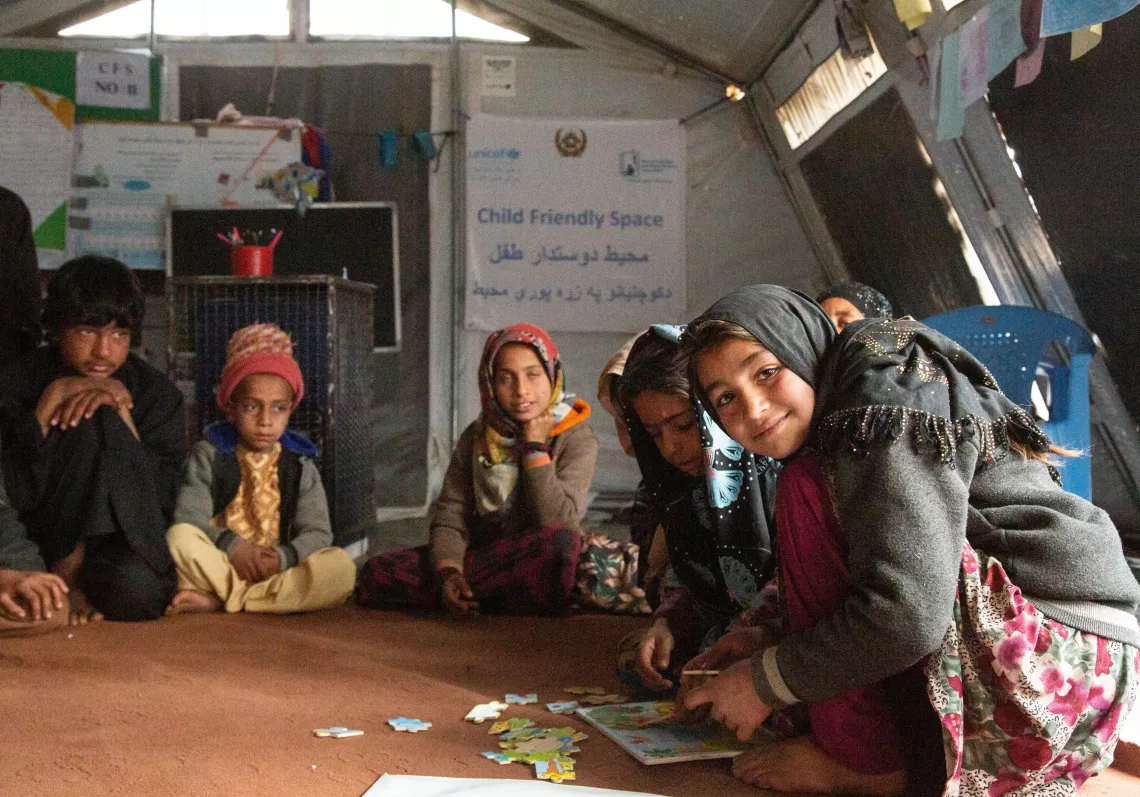
“I made new friends at the centre,” says Badro. “I enjoy being at the centre, because I play and have fun with my peers,” says Badro.
When her mother noticed the difference in Badro’s behavior, she convinced her husband to postpone the marriage till she reaches age.
“We have committed a mistake by getting Badro engaged at the age of 5,” says Babo “My husband and I will make sure she will get married only after she turns 18.”

